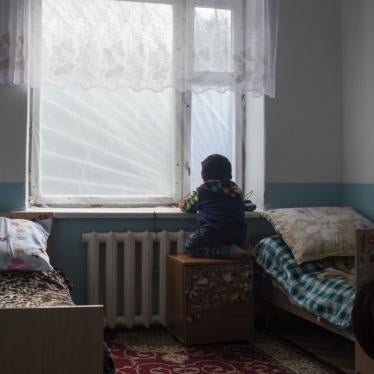(Geneva) – A landmark ruling by a United Nations body found that Hungary’s voting laws are disenfranchising people with disabilities, Human Rights Watch said today. The ruling applies to all 137 countries that have adopted the international disability rights treaty. These governments are required to review their laws and practices to eliminate any provisions that prevent people from voting due to their disabilities.
The UN Committee on the Rights of People with Disabilities, the panel of experts who interpret the international disability rights treaty, ruled that Hungary’s restriction on the right for people with intellectual disabilities to vote violates international human rights law. Under the recently amended Hungarian constitution, people under guardianship are automatically excluded from voting unless a judge determines they have the capacity to vote.
The ruling said that any exclusion of the right to vote on the basis of “perceived or actual disability,” whether as a general rule or following an individual assessment, was discrimination in violation of the Convention on the Rights of Persons with Disabilities (CRPD). Instead it said governments were under a duty to ensure all people with disabilities could exercise their right to vote, including in the way they design voting procedures and in providing assistance where necessary.
“This decision sends a strong message that people with disabilities have the same rights as everyone else, including when it comes to voting,” said Shantha Rau Barriga, disability rights director at Human Rights Watch. “How would any of us feel if required to appeal to a judge for the basic right to vote?”
Hungary ratified the CRPD and its Optional Protocol in July 2007. The Optional Protocol provides a mechanism for individuals to send complaints to the committee, if all national legal remedies have been exhausted.
In its ruling the committee found that, regarding people with intellectual and mental disabilities, “their automatic disenfranchisement regardless of the nature of their disability and their individual abilities was discriminatory and unjustified.” The committee also ruled that Hungary failed to guarantee to people with disabilities the right to exercise their legal capacity – the right to make decisions about one’s life – a key provision in the disability rights treaty.
This ruling examined the case of six Hungarian citizens with intellectual disabilities who had been placed under guardianship following judicial decisions. As a consequence, they had been automatically erased from the electoral register and were denied the right to vote in the 2010 parliamentary and municipal elections. In its ruling, the committee called on Hungary to reinstate these six people in the voter registry, repeal the discriminatory constitutional provisions, and enact laws that would guarantee the right to vote for people with disabilities.
The committee found that Hungary’s Constitution is in breach of article 29 of the CRPD, which guarantees the right to participate in political life on an equal basis with others, without any exception regarding alleged capacity. This requires making voting procedures accessible, appropriate, and easy to understand and use.
The constitution, which went into effect on January 1, 2012, restricts the right to vote for people with “limited mental ability.” This discriminatory law is part of Hungary’s broader regression in protecting human rights and the rule of law since the ruling Fidesz party started making major changes in the national legal framework after it took power in 2010.
Human Rights Watch released a report “Wrong Direction on Rights - Assessing the Impact of Hungary’s New Constitution and Laws,” and a joint letter with Amnesty International to the Members of the Parliamentary Assembly of the Council of Europe outlining key concerns, in May and June 2013 respectively.
Human Rights Watch has been monitoring the barriers to political participation for people with disabilities globally, including in Peru, Japan, Europe, and the United States.
In October 2011, after intense pressure from local organizations of people with disabilities and their families, the Peruvian electoral agency nullified its policies excluding more than 20,000 people with certain mental and intellectual disabilities from the voter registry. However, Peru’s civil code still allows a judge to declare a person with certain intellectual or mental disabilities incompetent and to impose a guardian, and thus deny them the right to vote.
“The committee’s ruling is a significant step toward making the disability rights treaty a reality for the billion people with disabilities worldwide,” Barriga said. “Voting is a fundamental aspect of being a citizen and should not be denied on the basis of disability.”







